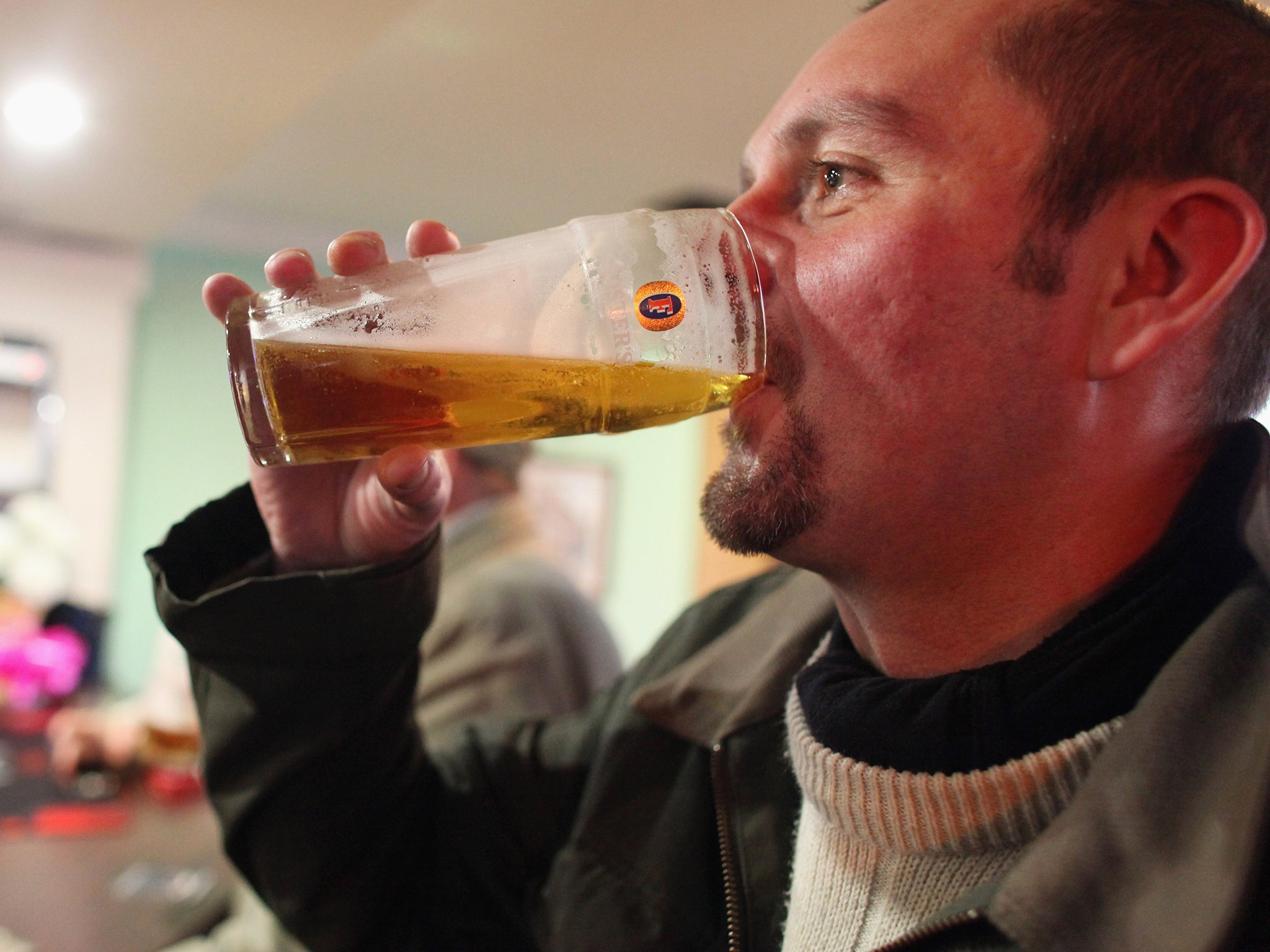Alcohol guidelines: let’s have the facts and decide for ourselves
I might go for a run before the pub, and have that third pint, and nobody will passively die

Your support helps us to tell the story
From reproductive rights to climate change to Big Tech, The Independent is on the ground when the story is developing. Whether it's investigating the financials of Elon Musk's pro-Trump PAC or producing our latest documentary, 'The A Word', which shines a light on the American women fighting for reproductive rights, we know how important it is to parse out the facts from the messaging.
At such a critical moment in US history, we need reporters on the ground. Your donation allows us to keep sending journalists to speak to both sides of the story.
The Independent is trusted by Americans across the entire political spectrum. And unlike many other quality news outlets, we choose not to lock Americans out of our reporting and analysis with paywalls. We believe quality journalism should be available to everyone, paid for by those who can afford it.
Your support makes all the difference.There was great excitement last week, when scientists discovered the “elixir of youth”. In a US study, the lifespan of mice was extended by 35 per cent using a treatment that might one day work in humans. The catch, as usual, was in the small print: “Declines in motor performance, muscle strength and memory remained unaltered.” Who wants to live for ever?
That’s what they all asked the Chief Medical Officer, Dame Sally Davies, when she tried to defend the Government’s new, lower guidelines on alcohol. “I would like people to… think, ‘Do I want my glass of wine [knowing it will] raise my risk of breast cancer?’” she said. Belligerent drinkers have accused her of nagging. Others have been scared by the figures: drinking more than the recommended limit of 14 units a week can raise the risk of breast cancer by up to 40 per cent, the report says.
We all know there are lies, damned lies and statistics, so I spent a frazzled afternoon analysing the data. The lifetime risk of developing breast cancer for a teetotal woman is 10.9 per cent, according to the Department of Health. For women who drink at the recommended guidelines, the risk rises to 12.64 per cent. At a weekly intake of 35 units, it increases to 15.26 per cent (i.e. a rise of 40 per cent or a further 24 per cent) . However, if you exercise, breast feed and have no family history of breast cancer, your likelihood of developing it starts off lower than the average woman’s….
“Different individuals will have different views as to what constitutes an acceptable risk,” admits the report, sensibly. Incidentally, it also points out that, while women’s long-term health can be more affected by drinking, men’s risk of alcohol-related injuries is far higher, because (to précis), men are more likely to act like idiots while drunk.
Compare this with last week’s less sensationalised news: an analysis of 77 studies from 21 countries that found up to 40 per cent fewer heart attacks thanks to smoking bans. The biggest drop in hospital admissions for heart disease was among non-smokers – so, clearly, passive smoking is dangerous.
Up to two-thirds of long-term smokers will be killed by it, according to Cancer Research UK, with half of those dying in middle age. But because nicotine is as addictive as heroin (the Royal College of Physicians says), smokers justify the risk. “I’d rather die happy at 50 than live without fags until I’m 89,” they say. But smoking does not tend to lead to a happy later life or an easy death.
I’m with the Chief Medical Officer: let’s have the facts and decide for ourselves. I might go for a run before the pub, and have that third pint, and nobody will passively die as a result. The Government can do the research but we are each responsible for the cost-benefit analysis of our own life. Apart from the mice. Somebody buy the poor mice a drink.
Join our commenting forum
Join thought-provoking conversations, follow other Independent readers and see their replies
Comments